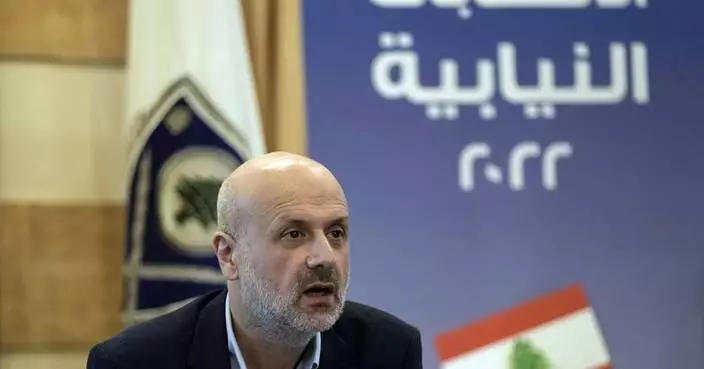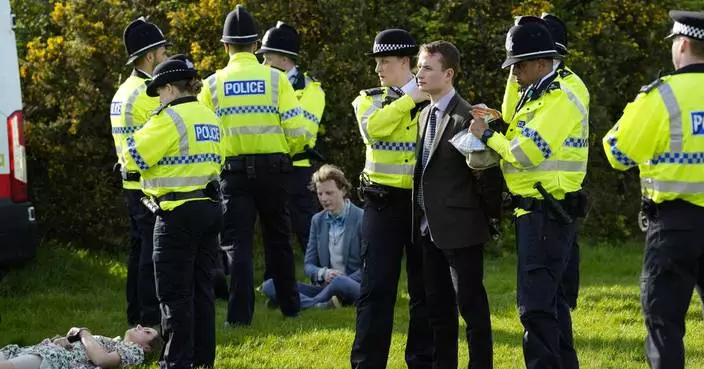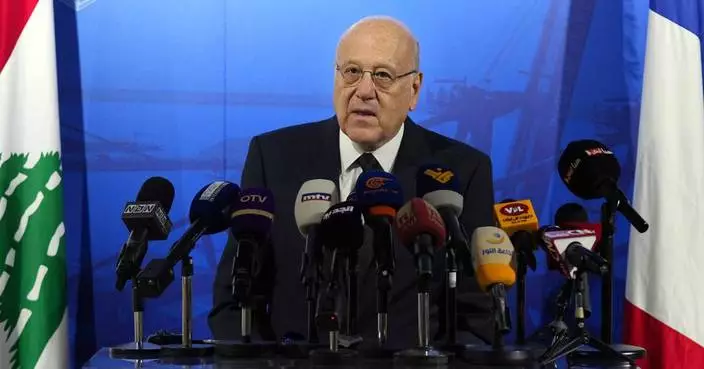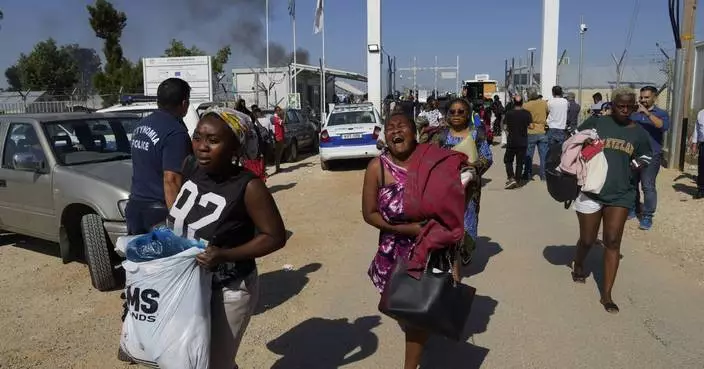Rescue workers resumed search operations early Friday in a building that collapsed last month in Beirut’s deadly blast in hopes of finding a survivor under the rubble after a pulsing signal was detected.
The search came as Lebanon was to mark one month since the blast that killed and wounded thousands of people and traumatized the country. A moment of silence was planned at 6:08 p.m., the moment that marks the most destructive single incident in Lebanon's history on Aug. 4.
Click to Gallery
Rescue workers resumed search operations early Friday in a building that collapsed last month in Beirut’s deadly blast in hopes of finding a survivor under the rubble after a pulsing signal was detected.
After hours of searching the work briefly stopped after sunset before some protesters arrived at the scene claiming the Lebanese army had asked the Chilean team to stop the search. The protesters started searching themselves until members of Lebanon’s Civil Defense team arrived an hour after midnight and resumed work.
On Thursday, the team used audio detection equipment for signals or heartbeat and detected what could be a pulse of 18 to 19 beats per minute. The origin of the pulsing signal was not immediately known but it set off a frantic search and raised new hope.
“Ninety-nine percent there isn’t anything, but even if there is less than 1% hope, we should keep on looking,” Youssef Malah, a civil defense worker, said Thursday. He said the work was extremely sensitive.
Every now and then, the Chilean team asked people on the streets, including a crowd of journalists watching the operation, to turn off their mobiles and stay quiet for five minutes so as not to interfere with the sounds being detected by their instruments.
Search operations first began Thursday afternoon after a sniffer dog belonging to a Chilean search and rescue team detected something as the team was going through the neighborhood of Gemmayzeh and rushed toward the rubble.
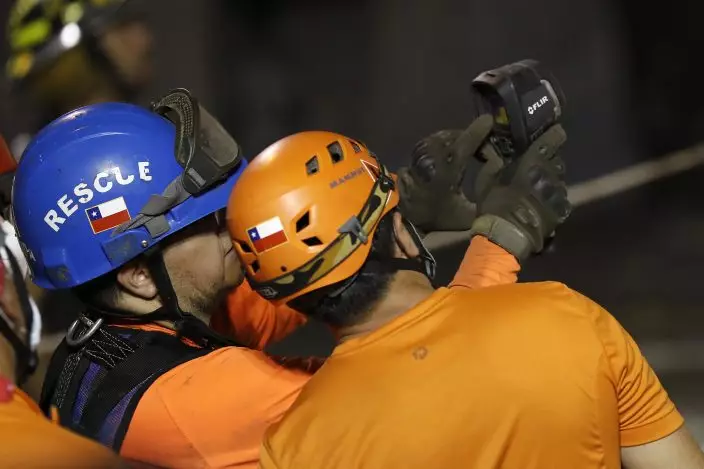
Chilean rescuers use a signal detected machine at the site of a collapsed building after getting signals there may be a survivor under the rubble, in Beirut, Lebanon, early Friday, Sept. 4, 2020. A pulsing signal was detected Thursday from under the rubble of a Beirut building that collapsed during the horrific port explosion in the Lebanese capital last month, raising hopes there may be a survivor still buried there. (AP PhotoHussein Malla)
After hours of searching the work briefly stopped after sunset before some protesters arrived at the scene claiming the Lebanese army had asked the Chilean team to stop the search. The protesters started searching themselves until members of Lebanon’s Civil Defense team arrived an hour after midnight and resumed work.
The army issued a statement Friday saying the Chilean team stopped work half an hour before midnight for fears that a wall might collapse, endangering them. It added that army experts inspected the site and two cranes were brought in to remove the wall and the search resumed.
On Friday morning, rescue workers were slowly removing debris with their hands and shovels digging a hole in the building. The more they dug, the more careful the work became to protect any possible survivors under the rubble.
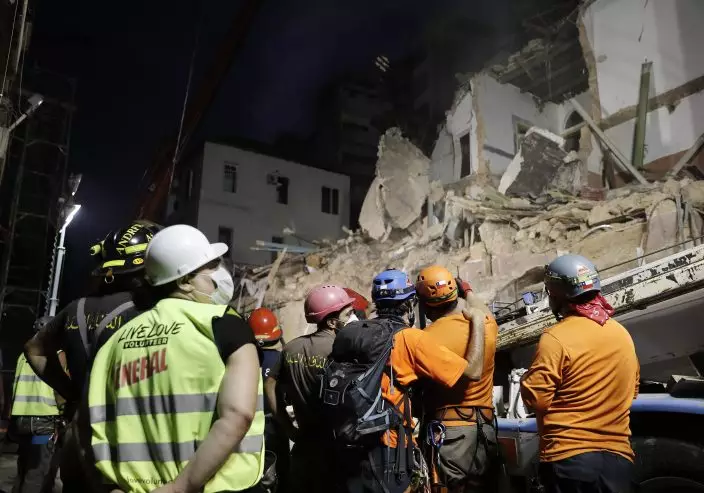
Lebanese and Chilean rescuers watching a crane at the site of a collapsed building after getting signals there may be a survivor buried in the rubble, early Friday, Sept. 4, 2020, in Beirut, Lebanon. A pulsing signal was detected Thursday from under the rubble of a Beirut building that collapsed during the horrific port explosion in the Lebanese capital last month, raising hopes there may be a survivor still buried there. (AP PhotoHussein Malla)
On Thursday, the team used audio detection equipment for signals or heartbeat and detected what could be a pulse of 18 to 19 beats per minute. The origin of the pulsing signal was not immediately known but it set off a frantic search and raised new hope.
On Friday morning, the beats dropped to seven per minute according to reporters at the site.
Still, it was extremely unlikely that any survivors would be found a month after the August blast that tore through Beirut when nearly 3,000 tons of ammonium nitrate ignited at the port. The explosion killed 191 people and injured 6,000 others and is considered to be one of the biggest non-nuclear explosions ever recorded. Thousands of homes were damaged.
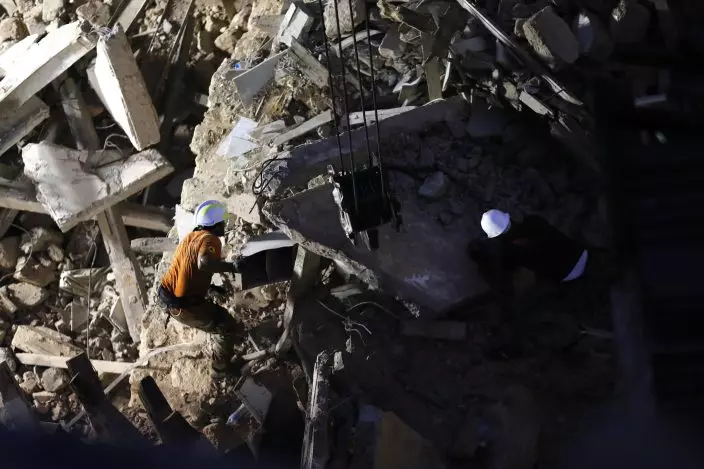
Lebanese and Chilean rescuers searching in the rubble of a collapsed building after getting signals there may be a survivor under the rubble in Beirut, Lebanon, early Friday, Sept. 4, 2020. A pulsing signal was detected Thursday from under the rubble of a Beirut building that collapsed during the horrific port explosion in the Lebanese capital last month, raising hopes there may be a survivor still buried there. (AP PhotoHussein Malla)
“Ninety-nine percent there isn’t anything, but even if there is less than 1% hope, we should keep on looking,” Youssef Malah, a civil defense worker, said Thursday. He said the work was extremely sensitive.
A Chilean volunteer, however, said their equipment identifies breathing and heartbeat from humans, not animals, and it detected a sign of a human. The worker, who identified himself as Francesco Lermonda, said it is rare, but not unheard of, for someone to survive under the rubble for a month.
The past few weeks have been extremely hot in Lebanon, including a current heat wave with high levels of humidity.
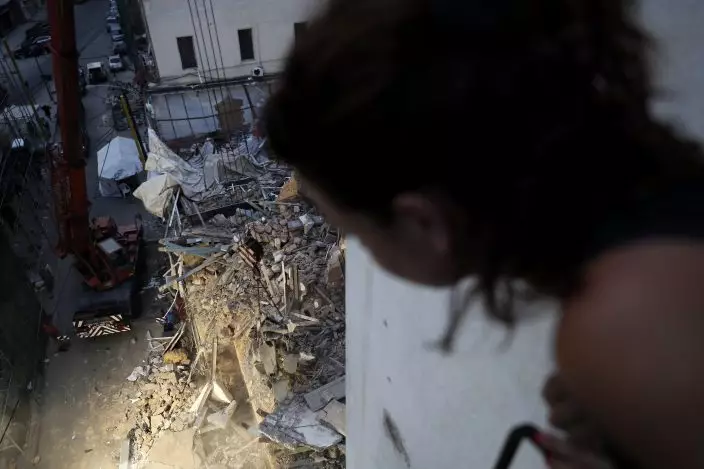
A woman watches from her apartment balcony as a crane removes the rubble of a building after a Chilean rescue team getting signals there may be a survivor at the site in Beirut, Lebanon, Early Friday, Sept. 4, 2020. A pulsing signal was detected Thursday from under the rubble of a Beirut building that collapsed during the horrific port explosion in the Lebanese capital last month, raising hopes there may be a survivor still buried there. (AP PhotoHussein Malla)
Every now and then, the Chilean team asked people on the streets, including a crowd of journalists watching the operation, to turn off their mobiles and stay quiet for five minutes so as not to interfere with the sounds being detected by their instruments.
Two days after the explosion, a French rescue team and Lebanese civil defense volunteers had looked into the rubble of the same building, where the ground floor used to be a bar. At the time, they had no reason to believe there were any bodies or survivors left at the site.
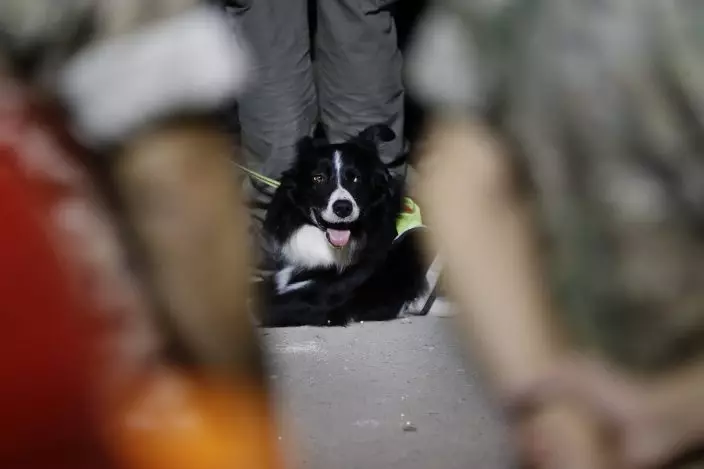
A Chilean rescue dog sits near the site of a collapsed building after getting signals there may be a survivor under the rubble, early Friday, Sept. 4, 2020, in Beirut, Lebanon. A pulsing signal was detected Thursday from under the rubble of a Beirut building that collapsed during the horrific port explosion in the Lebanese capital last month, raising hopes there may be a survivor still buried there.(AP PhotoHussein Malla)
BEIT MERI, Lebanon (AP) — Lebanon’s interior minister alleged Wednesday that the mysterious abduction and killing of a Hezbollah-linked Lebanese currency exchanger in a villa on the edge of a quiet mountain resort town earlier this month was likely the work of Israeli intelligence operatives.
The killing of Mohammad Srour, 57, who was sanctioned by the U.S., was like something out of an international spy thriller. Pistols equipped with silencers and gloves were found in a bucket of water at the scene, along with chemicals apparently intended to remove fingerprints and other evidence, Interior Minister Bassam Mawlawi said in an interview with The Associated Press. Thousand of dollars in cash were left scattered around Srour’s body, as if to dispel any speculation that robbery was the motive.
“Lebanese security agencies have suspicion or accusations that Mossad was behind this operation,” Mawlawi said, referring to the Israeli spy agency. “The way the crime was carried out led to this suspicion.”
He provided no specific evidence for his allegations. Mawlawi said the investigation is still ongoing and once it's over, the results will be made public and referred to judicial authorities.
The Israeli prime minister’s office, which oversees Mossad, did not immediately respond to a request for comment.
The suspicion by Lebanon’s security agencies that the crime could be the work of Israeli agents comes at a time when Lebanon’s southern border region has been rocked by ongoing clashes between militants of the Hamas-allied Hezbollah group and Israeli troops.
The U.S. Treasury sanctioned Srour in 2019 over his alleged money transfers from Iran through Hezbollah to the Palestinian militant group Hamas in the Gaza Strip.
“Mohammad Srour’s activity in money exchange is known, as are the transfers of money from which side to which side,” Mawlawi said.
Srour’s killing earlier this month, came as U.S. and Israeli officials have been trying to crack down on transfers of funds to Hamas. The push has intensified following the Oct. 7 Hamas-led attack on southern Israel that triggered the devastating war in Gaza and its ripple effects around the region.
Last month, a senior U.S. Treasury official visiting Beirut pressed Lebanese authorities to prevent funds from being funneled to Hamas through the tiny country. Jesse Baker, deputy assistant secretary of the Treasury for Asia and the Middle East in the Office of Terrorist Financing and Financial Crimes, met with top Lebanese political and financial officials.
Israel's military said it has killed a number of money exchangers in Gaza for allegedly funding Hamas.
Srour’s killing was clearly planned in advance. Three Lebanese judicial officials familiar with the investigation told the AP that a man posing as a customer had contacted Srour from abroad and asked him to deliver a cash transfer to a woman in the mountain resort of Beit Meri.
The officials, who spoke on condition of anonymity because the investigation is ongoing, said Srour first went with his nephew and left after handing the woman the money. He was contacted by the same person with another request a day after his first visit, the officials said. This time he went alone, after which his family lost contact with him.
Mawlawi said the cellphone the woman used to get in touch with Srour was only activated to contact him.
He said the perpetrators had first tried to rent an apartment in Beirut’s southeastern suburb of Hazmieh, a detail that has not been previously reported, but they later canceled, apparently because “they did not find (the apartment) suitable to carry out the operation."
Mawlawi said the killers then shifted to the quiet town of Beit Meri, famous for its posh homes with red-brick roofs, sprawling forest and Roman-era archaeological site, where they rented a three-story villa on the edge of the town using fake Lebanese identity cards. The General Security Directorate is looking into the identities of people who entered and left the country around the period of the killing, he said.
Srour went missing on April 3 in Beit Meri, and his body was found a week later in the villa. Mawlawi said investigators found “a large number of bullet” wounds in different parts of his body, including his arms and legs. He was reportedly handcuffed.
The villa is located on a quiet side street lush with trees.
“We did not hear anything,” said Christian Francis, who lives across the street from the villa where Srour was killed. He added that most people in the highly secured area have dogs, while municipal police have a checkpoint nearby and the Lebanese army has a post few hundred meters (yards) away.
Beit Meri’s mayor, Roy Abou Chedid, told the AP that the apartment was rented in late February to an unknown person for one year for $48,000. He added that the family that owns the villa did not register the rental contract at the municipality but had paid its municipal taxes on time in November.
“The operation was carried out in a way that is more than professional,” Abou Chedid said, adding that the neighbors did not suspect anything and it took security agencies some time to locate which house Srour’s body was in.
A Hezbollah spokesperson declined to comment on the killing citing the ongoing investigation. The spokesperson refused to say whether Srour was a Hezbollah member but said that he worked in the past for the al-Qard al-Hasan Association, the financial arm of the Iran-backed group.
Israel has a long history of targeted killings in Lebanon, including drone strikes that have killed high-ranking Hezbollah commanders over the past six months. At least 260 Hezbollah members have been killed by Israel in that period.
The U.S. has accused Srour of transferring tens of millions of dollars annually from Iran’s Islamic Revolutionary Guard Corps to Hamas’ military wing, the Qassam Brigades, alleging that starting in 2014, Srour “was identified as in charge of all money transfers” from the IRGC to the Qassam Brigades.
Srour’s family members have not given media interviews since his body was found but said in a televised statement that all his financial transactions were transparent and he simply worked in currency exchange. They urged security agencies to swiftly find the perpetrators.
During Srour’s funeral in his hometown of Labweh in northeast Lebanon, a Hezbollah flag was flown over his coffin and scores of men and women chanted “death to America and death to Israel” as they marched toward the cemetery.
Chehayeb reported from Beirut. Associated Press writer Josef Federman contributed to this report from Jerusalem.
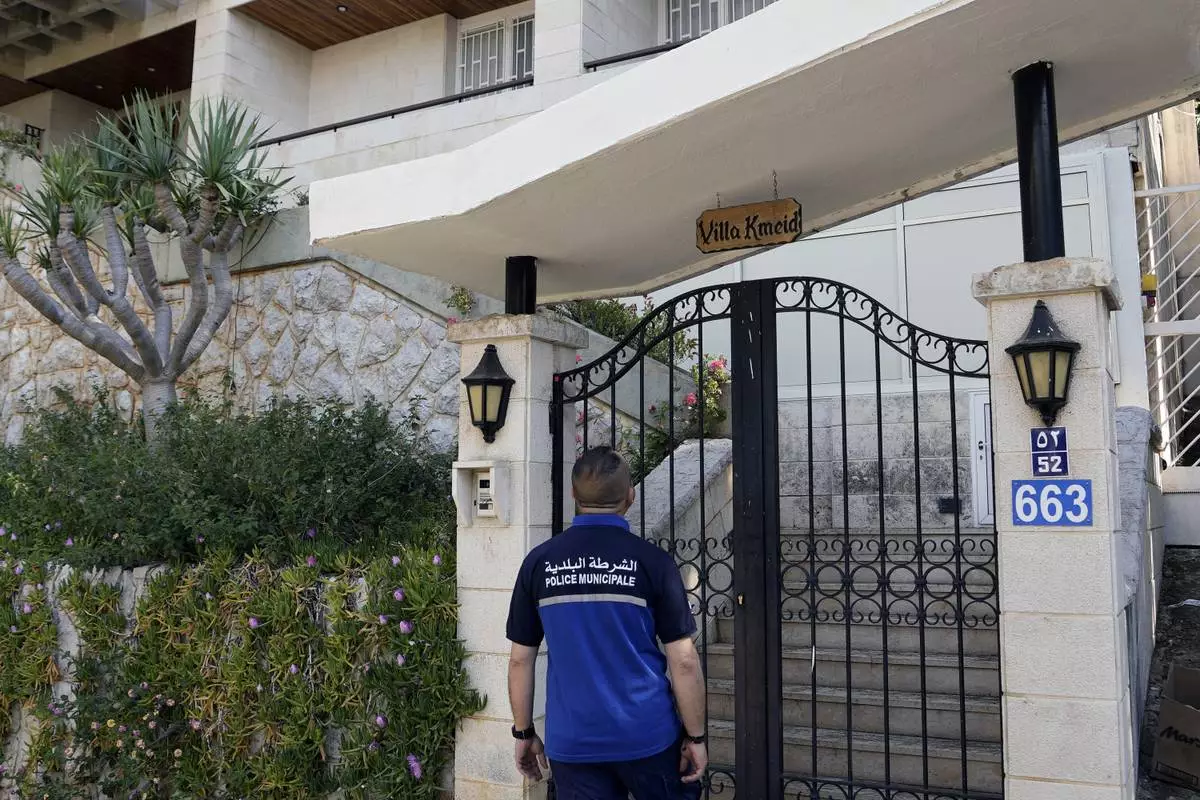
A municipal police officer stands outside a villa where the Lebanese money changer Mohammad Srour, 57, was found tortured and killed in Monte Verdi neighborhood of Beit Meri, Lebanon, Tuesday, April 16, 2024. Lebanon’s interior minister alleged Wednesday that the mysterious abduction and killing of a Hezbollah-linked Lebanese financier in a villa on the edge of a quiet mountain resort town earlier this month was likely the work of Israeli operatives. (AP Photo/Hassan Ammar)
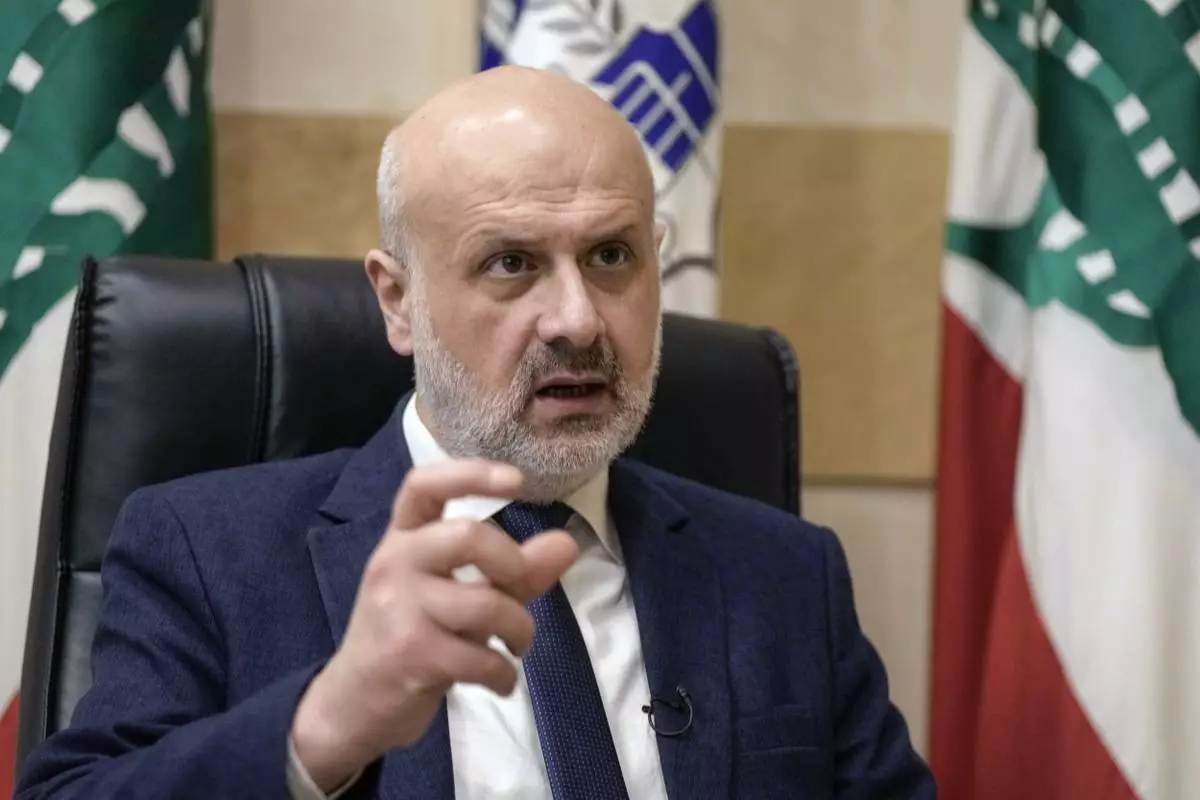
Lebanese Interior Minister Bassam Mawlawi, speaks during an interview with the Associated Press at the interior ministry in Beirut, Lebanon, Tuesday, April 16, 2024. Lebanon’s interior minister alleged Wednesday that the mysterious abduction and killing of a Hezbollah-linked Lebanese financier in a villa on the edge of a quiet mountain resort town earlier this month was likely the work of Israeli operatives. (AP Photo/ Hassan Ammar)
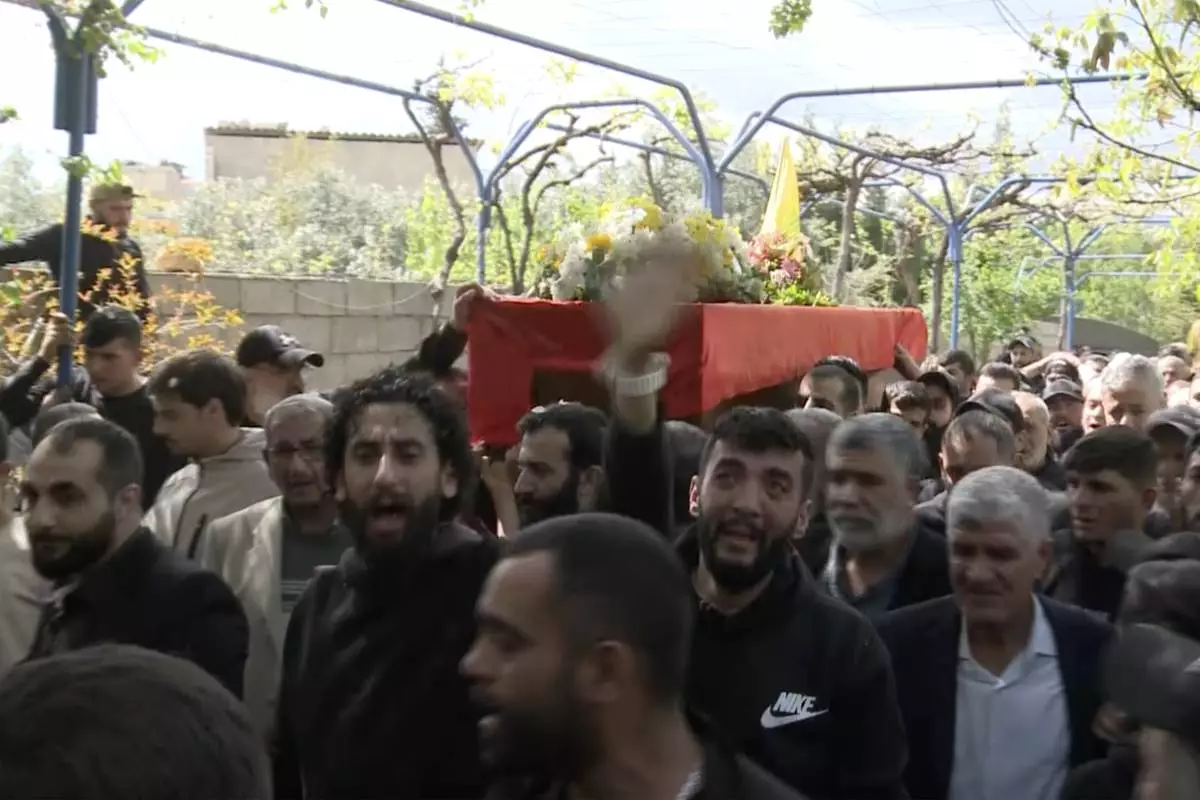
In this grab taken from video, mourners carry the coffin of Lebanese money changer Mohammad Srour, 57, who was found tortured and killed inside a villa in Monte Verdi neighborhood of Beit Meri, during his funeral procession in Labweh village, near the border with Syria, northeast Lebanon, Thursday, April 11, 2024. Lebanon’s interior minister alleged Wednesday that the mysterious abduction and killing of a Hezbollah-linked Lebanese financier in a villa on the edge of a quiet mountain resort town earlier this month was likely the work of Israeli operatives. (AP Photo)
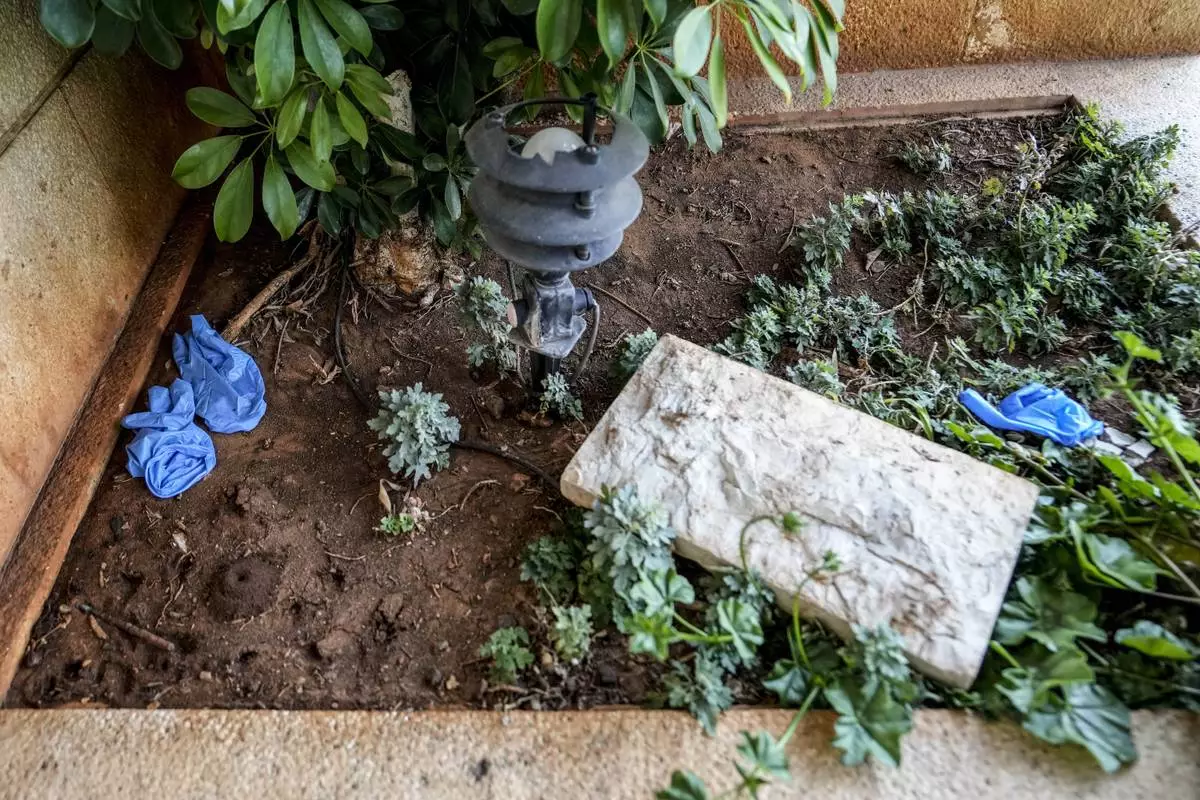
Medical gloves sit outside a villa where money changer Mohammad Srour, 57, was found tortured and killed in Monte Verdi neighbourhood of Beit Meri, Lebanon, Tuesday, April 16, 2024. Lebanon’s interior minister alleged Wednesday that the mysterious abduction and killing of a Hezbollah-linked Lebanese financier in a villa on the edge of a quiet mountain resort town earlier this month was likely the work of Israeli operatives. (AP Photo/Hassan Ammar)
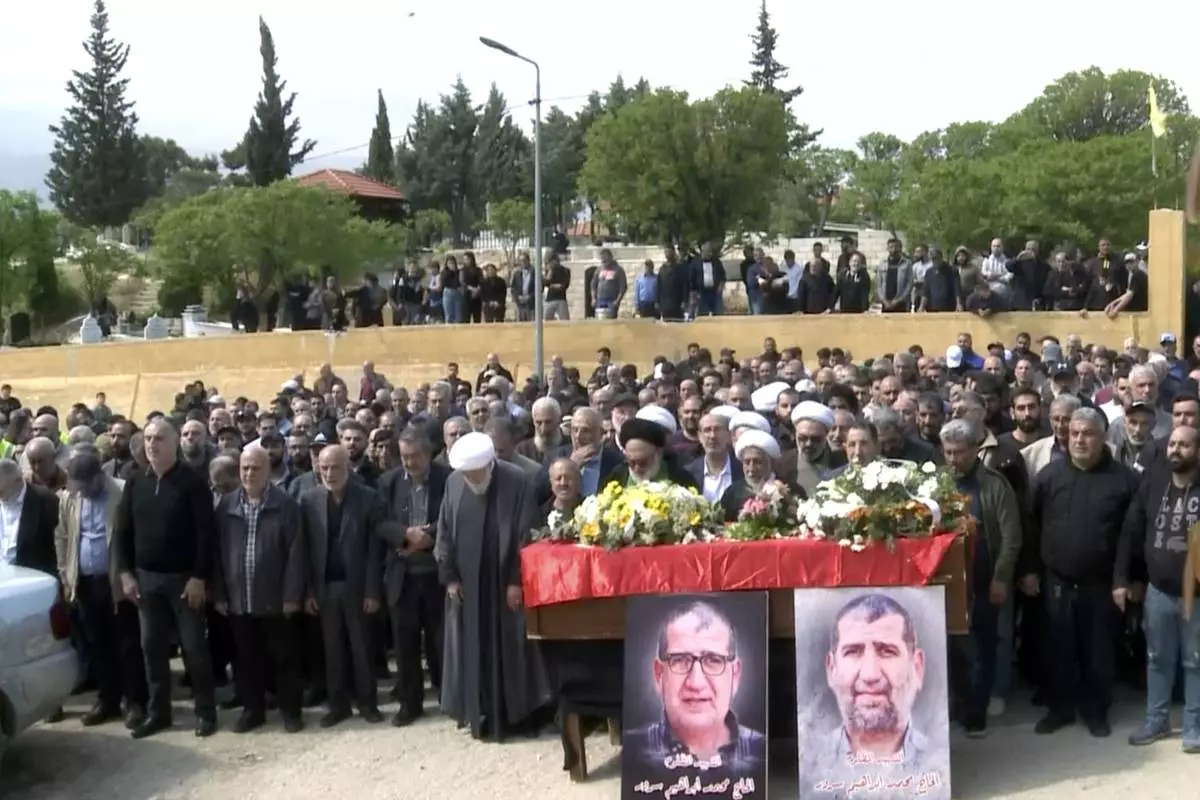
In this grab taken from video, mourners pray over the coffin of Lebanese money changer Mohammad Srour, 57, who was found tortured and killed inside a villa in Monte Verdi neighborhood of Beit Meri, during his funeral procession in Labweh village, near the border with Syria, northeast Lebanon, Thursday, April 11, 2024. Lebanon’s interior minister alleged Wednesday that the mysterious abduction and killing of a Hezbollah-linked Lebanese financier in a villa on the edge of a quiet mountain resort town earlier this month was likely the work of Israeli operatives. (AP Photo)
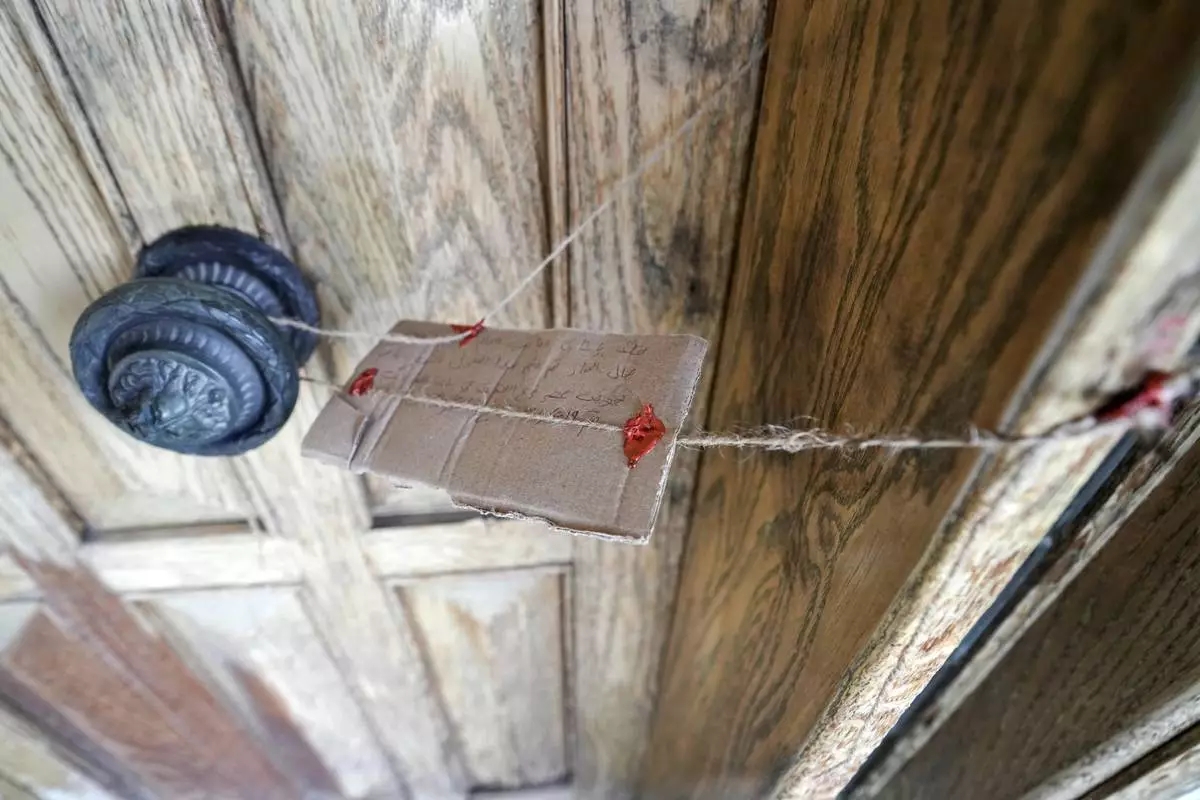
Lebanese authorities sealed the main door of a villa where money changer Mohammad Srour, 57, was found tortured and killed in Monte Verdi neighbourhood of Beit Meri, Lebanon, Tuesday, April 16, 2024. The mysterious abduction and murder of a United States-sanctioned Lebanese money changer in a three-story villa on the edge of a quiet mountain resort town overlooking Beirut was most likely the work of Israeli operatives, Lebanon's interior minister said Wednesday. (AP Photo/Hassan Ammar)

Municipal police officers patrol outside a villa where the Lebanese money changer Mohammad Srour, 57, was found tortured and killed in Monte Verdi neighbourhood of Beit Meri, Lebanon, Tuesday, April 16, 2024. Lebanon’s interior minister alleged Wednesday that the mysterious abduction and killing of a Hezbollah-linked Lebanese financier in a villa on the edge of a quiet mountain resort town earlier this month was likely the work of Israeli operatives. (AP Photo/Hassan Ammar)
















